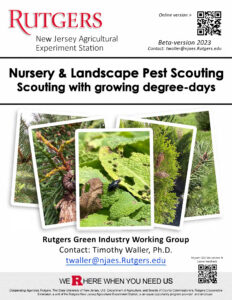Steven Kristoph Nursery Twilight Meeting
September 28, 2023 – 5:30pm to 7:00pm
Steven Kristoph Nursery
9 Roberts Rd, Millstone, NJ 08535
NJ Pesticide License Recertification Credits (1A: 3, 3A: 3, 10: 3, PP2: 3)
Join Steven Kristoph and Bill Errickson for an in-person tour of Steven Kristoph Nursery to discuss best management practices for container production of low-input and native plant species. Topics will include IPM practices, growing media, plant propagation, sanitation, disease control, and weed management.
This FREE program is geared towards commercial nursery growers and landscapers.
Space is limited.
Please RSVP to reserve your spot.
Rutgers Cooperative Extension of Monmouth County
732-431-7260
Catherine.vanBenschoten@co.monmouth.nj.us
Hosted by Rutgers Cooperative Extension of Monmouth County and Steven Kristoph Nursery

